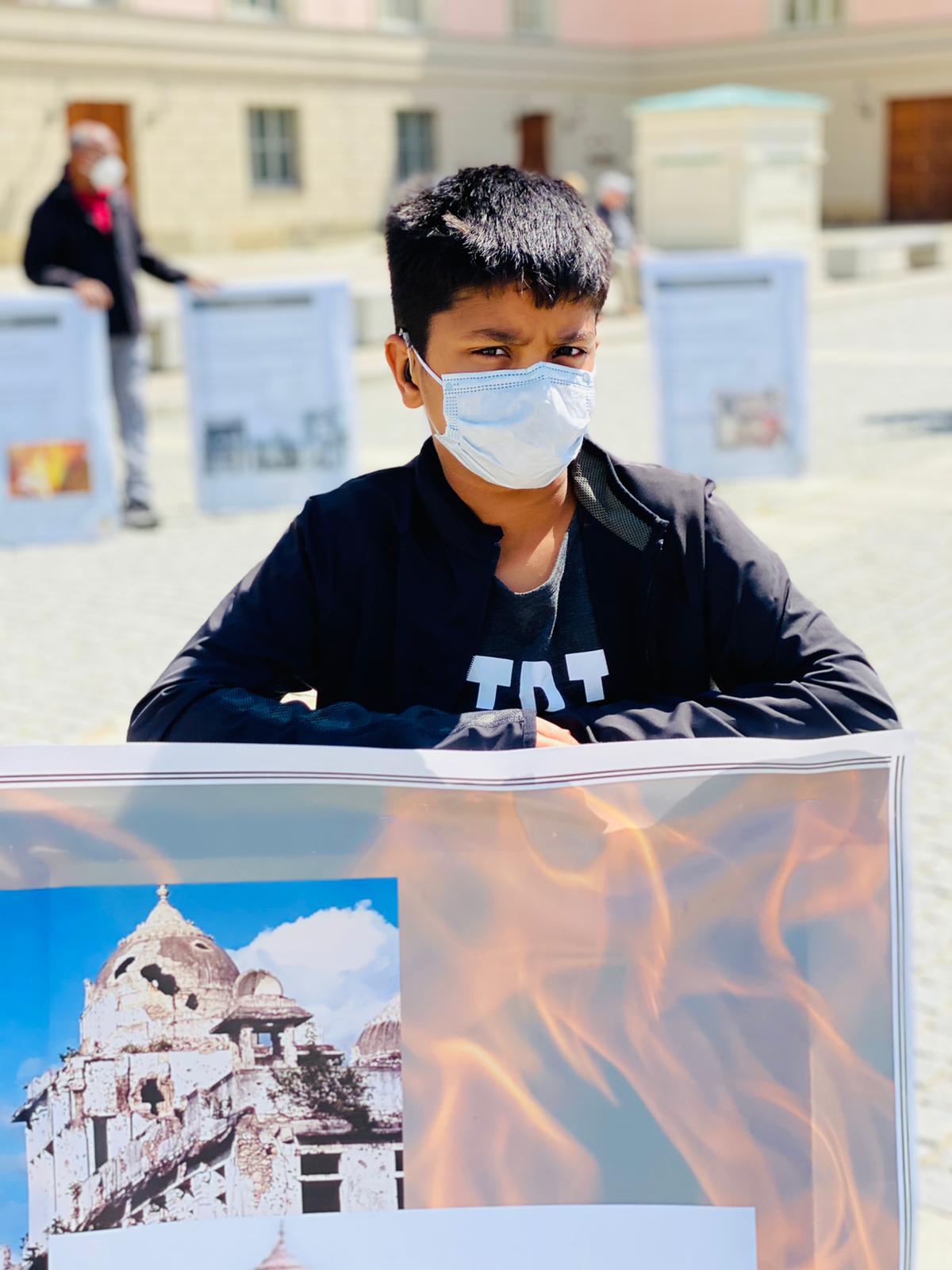
'Where books are burned, there humans are also burned' - Heinrich Heine
German Tamils gathered in Bebelplatz, Berlin, to commemorate the 40th anniversary of the burning of the Jaffna library.

The memorial was held in solidarity with Tamils in the homeland and across the diaspora who mourned the destruction of over 95,000 unique and irreplaceable Tamil palm leaves (ola), manuscripts, parchments, books, magazines, and newspapers held in the library. The attack on the library on May 31, 1981, was conducted by Sri Lankan security forces and state-sponsored mobs who were seen to be committing an act of genocide.


Bebelplatz was chosen as a location due to its historic significance, being the infamous site in which the Nazi regime held book burning ceremonies. Demonstrators held an exhibition in the city centre with placards highlighting the historic discrimination against Tamils and details behind the Jaffna library burning.

Speaking at the rally Sankar, from the People's Council of Eelam (VETD), stated;
We must pay attention to one particular fact. A German poet called Heinrich Heine has said that “Where books are burned, there humans are also burned.” (Dort wo man Bücher verbrennt, verbrennt man auch am Ende Menschen.) This historical verse happens to be the truth (in our homeland). The injustice that has been perpetrated against Eelam Tamils in the homeland for 70 years and the height of the genocide in 2009 when a large number of Tamils were killed in Mullivaikkal stands as a manifestation of these lines.
Therefore, we Tamils, wherever we live in the world, must protest against the Sinhala-chauvinist state.
It is notable that global Tamils have come forward today to unveil the simulation of the very same library that was destroyed, which is modernised and contains a large number of books.
He further added:
We stand here as Eelam Tamils, in a place that has been at the forefront of the history of global politics, remembering our memories. Let us observe silence in respect to the great heroes who sacrificed their lives in our national liberation struggle and to the civilians and the fighters who were killed by the Sinhala state and by India.
The burning of the Jaffna library, which is an important event in the genocide against Tamils, has been recorded in world history as a dark day... In our nation, it was not just books that were burned, but also the Jaffna library, which served as one of Asia’s largest libraries, was torched and completely destroyed by the Sinhala-chauvinist government.
On that basis, we stand as the next generation that bears this history. Not just us, but we stand here with a motive to pass on this history also to the generations that would come after us.
We are doing this on this platform even though this is a difficult situation with the coronavirus spreading. People of different nationalities pass through these streets and read the texts about genocide displayed here. We have depicted in German why, how and with what ulterior motive the burning took place, in the form of an exhibition. We will continue this event as a presentation of the events (of the burning of the library).
We need your support
Sri Lanka is one of the most dangerous places in the world to be a journalist. Tamil journalists are particularly at threat, with at least 41 media workers known to have been killed by the Sri Lankan state or its paramilitaries during and after the armed conflict.
Despite the risks, our team on the ground remain committed to providing detailed and accurate reporting of developments in the Tamil homeland, across the island and around the world, as well as providing expert analysis and insight from the Tamil point of view
We need your support in keeping our journalism going. Support our work today.
For more ways to donate visit https://donate.tamilguardian.com.

